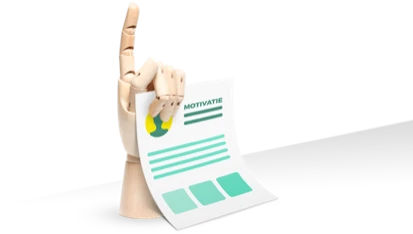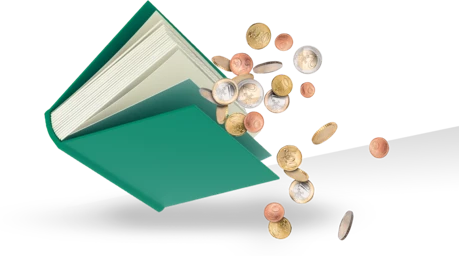Wo master - Kunst en Cultuur
Kunst- & cultuurwetenschappen
Varianten: Kunstgeschiedenis, Contemporary Theatre, Dance and Dramaturgy, Gender Studies, Applied Musicology, Arts and Society

Over de opleiding Open dag: 30 januari

De masteropleiding Kunst- & en cultuurwetenschappen bestaat uit 5 varianten:
- Applied Musicology
- Arts and Society
- Contemporary Theatre, Dance and Dramaturgy
- Gender Studies
- Kunstgeschiedenis
Keuzes binnen de opleiding
-
Ben je gefascineerd door kunst of architectuur? Het masterprogramma Kunstgeschiedenis richt zich op het onderzoeken van beide. We richten ons op kunst uit het verleden en het heden, met een kritische en interdisciplinaire benadering. We leiden je in één jaar op tot een kunsthistorisch of architectuurhistorisch professional met een brede kennis van zowel kunsthistorisch onderzoek als van de praktijk.
In deze master richten we ons op technical, global en digital art history.
Voor studenten die naast hun master een extra uitdaging zoeken, biedt de Universiteit Utrecht diverse interdisciplinaire honoursprogramma’s aan.
Bezoek onze website voor meer info over deze master: https://www.uu.nl/masterskunstgeschiedenis
-
This Master's programme focuses on new and interdisciplinary forms of theatre, dance and dramaturgy. How do performance and choreography respond to current societal phenomena? How does this lead to new artistic forms and strategies and new modes of storytelling? In this Master you will learn how to critically reflect and write about these developments. Fully taught in English, this Master’s programme takes an academic approach to contemporary performance. Utrecht University closely collaborates with the field of theatre and dance in the Netherlands and Flanders. You will get acquainted with state-of-the-art theory, but you will also be oriented towards the practice of theatre and dance. This is exemplified by the focus on dramaturgy, an internship in the second semester and the many opportunities to meet with practitioners.
For students looking for an extra challenge, Utrecht University offers several interdisciplinary honours programmes.
Visit our website to read more about this programme: https://www.uu.nl/en/contemporary-theatre-dance-and-dramaturgy
Kennismaken met deze variant?
-
Emancipation, the recognition of differences, and awareness of intersections of gender with other factors of identity making (class, race, age, sexuality, etc.) are crucial tools in analysing social and cultural relations in today’s postcolonial and post-secular societies. Gender Studies provides you with an interdisciplinary understanding of these tools, as well as advanced analytical skills. You will be trained within an internationally diverse cohort of students and academic staff to become a professionally successful 'agent of change'.
For students looking for an extra challenge, Utrecht University offers several interdisciplinary honours programmes.
Visit our website to read more about this master: https://www.uu.nl/en/masters/gender-studies
Kennismaken met deze variant?
-
Through its focus on musical infrastructure, Utrecht University's Master's programme Applied Musicology will equip you with the specific knowledge and skills required to operate as a musicologist within the international musical industry. The programme utilizes reflective training in both current and innovative approaches in musicology, through which you will learn to apply academic musicological skills to the day-to-day challenges in a musical life.
Our Master's programme was designed in direct dialogue with top institutions within the musical infrastructure in the Netherlands and beyond; it does not discriminate between classical and popular music. The curriculum builds on knowledge and skills gained through a Bachelor's in Musicology, with emphasis on both historical musicology and the relation of music with other media.
For students looking for an extra challenge, Utrecht University offers several interdisciplinary honours programmes.
Visit our website for more info on the Master Applied Musicology: https://www.uu.nl/en/masters/applied-musicology
Kennismaken met deze variant?
-
The cultural world is in a state of rapid transformation due to technological innovation, urbanisation, economic globalisation, and an increasingly unpredictable sociopolitical landscape. All facets of the arts – practice, organisation, leadership, societal relevance, and internationalisation (in Europe and beyond) – are affected by this transformation. Utrecht University's Master of Arts and Society will prepare you to operate as a leading figure in the global arts, media, and cultural sectors of the future.
Our Master’s programme is designed to meet the urgent need for arts professionals who possess rigorous theoretical and research skills coupled with practical abilities and an acute awareness of the current state of the sector at the local and global levels. As a student in this programme you will explore, for example, the dynamics and dilemmas within existing mainstream culture and its relationship with a growing number of “alternative” cultural practices, new models of creative production and industry, and the ever-increasing role of the arts in social justice.
For students looking for an extra challenge, Utrecht University offers several interdisciplinary honours programmes.
Visit our website to read more about this Master: https://www.uu.nl/en/masters/arts-and-society
Kennismaken met deze variant?
- + Meer
- Architectuurgeschiedenis en monumentenzorg
- Moderne en hedendaagse kunst: theorie, kritiek en beroepspraktijk
- Oude kunst: onderzoek, actualiteit en praktijk
-
During the Graduate Honours Interdisciplinary Seminars you will meet students from other disciplines in a series of small-scale seminars. Under supervision of leading UU researchers you will study socially relevant themes. These research themes vary from privacy and globalization to DNA and complex systems. You follow one seminar per study period and conclude the year with an interdisciplinary group project.
GHIS is offered in English and available for all Master’s students from the UU.
Kennismaken met deze honoursprogramma?
-
In the Leadership Programme you discover what kind of leader you are or want to be. You apply knowledge from different disciplines to real leadership dillemas and get a better understanding about what it means to be a leader in a globalising world. You follow workshops (i.a. public speaking skills, conflict management) taught by experts ranging from UU professors and external lecturers. During the interactive and intimate College Tours you can engage with leaders from different domains in society. You finish the year by working with a leader as part of the Leader to Shadow component.
The Leadership Programme has both an English and Dutch track and is available for all Master’s students from the UU.
Kennismaken met deze honoursprogramma?
-
Young Innovators is an honours programme for curious and involved students that like to commit to challenges about sustainability and societal wellbeing. You’re a changemaker working for and on a better world. Young Innovators allows you to work in interdisciplinary teams on projects that shape social innovation.
Kennismaken met deze honoursprogramma?
Op Studiekeuze123 kun je informatie vergelijken. Op de website van de onderwijsinstelling kun je verder lezen als de opleiding je aanspreekt.
Bekijk instellingswebsiteBekostiging: Overheid
Diploma: Master of Arts
Toelating & selectie € 2.694 wettelijk collegegeld in 2026 / 2027

Om toegelaten te worden tot een opleiding moet je aan bepaalde eisen voldoen.

Toelatingseisen
Om aan een master te kunnen starten, heb je een bachelordiploma nodig.
Sluit je bachelor niet direct aan op de master, of stroom je door van hbo naar wo? Dan moet je meestal een schakelprogramma of premaster volgen. Lees meer over schakelprogramma’s (Schakelprogramma, is dat nodig? - Studiekeuze123)
Collegegelden
Wettelijk collegegeld
Wettelijk collegegeld
Wettelijk of instellingscollegegeld?
Heb je recht op het wettelijk collegegeld of betaal je het instellingscollegegeld? Gebruik onze Collegegeldwijzer
Hoe hoog is het instellingscollegegeld? Bekijk het op de website van de universiteit
Meer weten?
Belangrijke data

Mis geen belangrijke gebeurtenissen. Check belangrijke data ook bij de opleiding zelf.

-
7
oktober 2026
Open dag / avond
Meer open dagen -
Check bij de opleiding zelf
Aanmelddeadline
Bekijk instellingswebsite
Tijdens de opleiding 94 eerstejaars

Geen enkele opleiding is hetzelfde. Kijk daarom naar de kenmerken van een opleiding.

Studeren bij deze instelling
Studieadvies
We hebben onvoldoende betrouwbare informatie over dit onderwerp.
Studieverloop
Diploma binnen 2 jaar
Meer weten?
Tevredenheid 4.0/5.0 algemene tevredenheid

Hoe beoordelen de (oud)studenten deze opleiding?

Nationale Studenten Enquête
Hoe tevreden waren studenten in 2025 over aspecten van deze opleiding?
|
Deze opleiding
Universiteit Utrecht |
Landelijk gemiddelde
Kunst- & Cultuurwetenschappen Vergelijk alle 9 opleidingen |
verschil | |
|---|---|---|---|
|
Studenttevredenheid
Meer informatie | 4.0 / 5 | 3.9 / 5 | |
| Sfeer | 4.5 / 5 | 4.4 / 5 | |
| Studiefaciliteiten | 4.1 / 5 | 3.9 / 5 | |
| Studie opnieuw kiezen | 4.0 / 5 | 3.8 / 5 | |
| Inhoud en opzet | 4.0 / 5 | 3.8 / 5 | |
| Aansluiting beroepspraktijk | 3.9 / 5 | 3.2 / 5 | |
|
Studenttevredenheid
Meer informatie | 4.0 / 5 | 3.9 / 5 | |
| Sfeer | 4.5 / 5 | 4.4 / 5 | |
| Studiefaciliteiten | 4.1 / 5 | 3.9 / 5 | |
| Studie opnieuw kiezen | 4.0 / 5 | 3.8 / 5 | |
| Inhoud en opzet | 4.0 / 5 | 3.8 / 5 | |
| Aansluiting beroepspraktijk | 3.9 / 5 | 3.2 / 5 | |
| Docenten | 4.3 / 5 | 4.2 / 5 | |
| Lesstof in het Engels | 4.5 / 5 | 4.6 / 5 | |
| Studiebegeleiding | 4.1 / 5 | 3.9 / 5 | |
| Toetsing en beoordeling | 4.0 / 5 | 3.8 / 5 | |
| Betrokkenheid en contact | 4.2 / 5 | 4.0 / 5 | |
| Studiedruk |
Oordeel afgestudeerden
Over de studie Kunst- & Cultuurwetenschappen
Studeren met een ondersteuningsbehoefte
Veel studenten hebben tijdens hun studie behoefte aan extra voorzieningen of flexibiliteit in het onderwijs. Dit kan komen door een aandoening zoals dyslexie, een chronische ziekte, psychische klachten, maar ook topsport of ondernemerschap tijdens de studie. Studenten beoordeelden hoe tevreden ze zijn over de ondersteuningsmogelijkheden bij hun onderwijsinstelling.
Na afstuderen 35% van de werkenden vond een baan op niveau

Lees hoe het studenten van deze opleiding in de eerste periode na hun studie vergaat op de arbeidsmarkt.

Meest gekozen beroepen (na deze studie)
| Professoren en andere onderwijsgevenden in het hoger onderwijs | 11% |
| Specialisten op het gebied van reclame en marketing | 8% |
| Specialisten op het gebied van beleidsadministratie | 7% |
| Archivarissen en conservatoren | 6% |
| Verkoopmedewerkers | 5% |
Werkgelegenheid na deze studie
Bij deze studie zijn de verwachtingen voor het vinden van een baan minder goed.
Een (substantiële) baan vinden...
duurt gemiddeld 15 maanden.30% krijgt een vast contract.
Match tussen studie en beroep
58% vond een baan binnen het vakgebied van de studie
35% vond een baan op het niveau van de studie
Startsalaris
Het startsalaris na deze studie is lager dan het gemiddelde van alle wo master studies.
€ 2.561
Geschatte startsalaris na deze studie
€ 3.150
Geschat van alle wo master studies
Gemiddelde werkweek
Hoeveel uur afgestudeerden gemiddeld werken bij hun huidige baan.
32 uur
Het percentage zelfstandigen
Het aandeel mensen dat werkt als zelfstandige of ondernemer.
11%
Contact Contact 030 - 2533550

Meer weten over de opleiding? Neem contact op met Universiteit Utrecht


Meer informatie
Bezoek ook de website van Universiteit Utrecht
Bezoek website van Universiteit Utrecht


